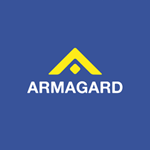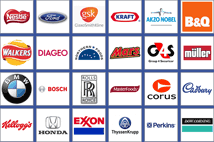Computers, monitors and other electrical equipment are now just as commonplace in industry and manufacturing as they are in the office or home. Unfortunately however the demands on electrical equipment such as computers are completely different in industrial environments than those placed on the office PC. Industrial environments tend to be dirty and grimy and […]
Read More...IP65 and IP54 – Protecting Your Electrical Equipment From Dust, Debris and Liquid
Posted by on January 21, 2014
Credit Crunch Advice – Computer Cabinets to Lengthen the Life of IT
Posted by on April 1, 2016
Most companies sail right through a recession or credit crunch and don’t know the difficulties that they face until something happens. The roof may start leaking and it is then you realise the overdraft is empty or the company fleet needs replacing and suddenly the difficulties of the banks effects you. One of the most […]
Read More...Computers and Hygiene
Posted by on January 21, 2014
It may surprise many people to learn that computer workstations harbour far more bacteria and germs than the average toilet seat. It has been said that many of the minor illnesses that keep people off work are actually caused by workstations and the office environments. Many offices can be described as sick, in that they […]
Read More...EN 60529 – Ingress protection
Posted by on January 21, 2014
EN 60529 is a European directive designed to specify degrees of protection provided by electronic enclosures. EN 60529 is governed by CENELEC – The European Committee for Electrotechnical Standardization. It is a standardized measure to ensure that computer enclosures can cope with certain criteria. The directive gives a two digit IP rating (ingress protection) for […]
Read More...Industrial Computers – Drawbacks to Solid State Machines
Posted by on January 21, 2014
Computers are now widely used in industrial processes. Many plants, factories and production lines are now fully automated and computers are essential in maintaining efficient productivity. The environments of industry are not however, ideally suited for the sensitive nature of processors and electronics. Many industrial areas contain high levels of dust, dirt, water and fluids, […]
Read More...Industrial Computer Enclosure – ATEX Protection in Explosive Atmospheres
Posted by on April 1, 2016
ATEX is the name commonly given to the European directives for controlling explosive atmospheres and the standards of equipment and protective systems used in them. ATEX is now law in all European Union countries with companies that have potentially explosive atmospheres legally obliges to ensure all equipment in ATEX zones complies with the directive. Explosive […]
Read More...Medical Keyboards Fight Against MRSA
Posted by on January 21, 2014
A recent study by the University of Arizona has discovered that computer keyboards can house more germs than toilet seats with 25% carrying the deadly superbug MRSA- one of a number of hospital-acquired infections which kill 5,000 people each year in the UK alone. Microbiologists found an average of 3,300 microbes per square inch on […]
Read More...Industrial Computer Enclosures – Common Questions
Posted by on April 1, 2016
What is an Industrial computer Enclosure? An industrial computer enclosure is put simply a box that protects a housed computer. It does not necessarily take the place of a normal PC enclosure but acts as a containing unit where an entire PC can be installed inside to gain protection from the elements of an industrial […]
Read More...Alternatives to an Industrial Computer
Posted by on January 21, 2014
Computers are as essential a tool for manufacturing and industry as they are for the office environment. However, the requirements for an industrial computer far out-strip those of a conventional desktop PC. An industrial computer needs to be able to withstand such hazards as dust, dirt, grime and water, whilst still being rugged enough to […]
Read More...Converting IP Ratings and NEMA codes
Posted by on April 1, 2016
NEMA (National Electrical Manufacturers Association) has established a range of standards for electrical equipment enclosures. NEMA codes tend to be used by countries outside of Europe, including the USA. NEMA codes use a number to describe the level of protection afforded by electrical equipment enclosures European countries use the European Union IP Rating system from […]
Read More...







